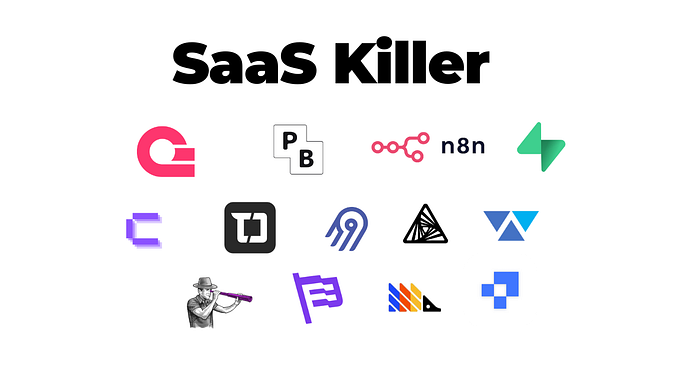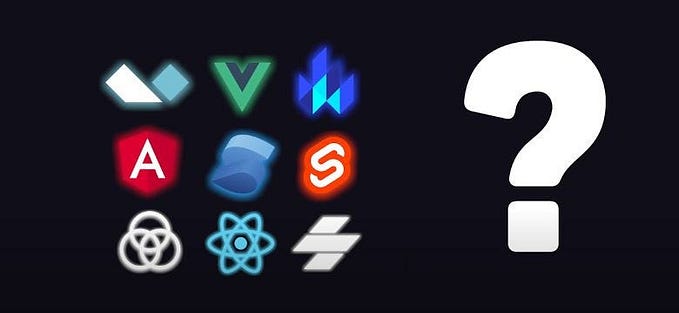Getting started as a UX intern
Whether you are an undergraduate searching for an internship for the first time or someone already working on another career path, you may have heard about the field of user experience, followed up and read some articles about it, or been to a few meetups. Now you have developed an interest in the field. You think you have what it takes to dive in, but first, you must get into the water to dive.
“It is easier to resist at the beginning than at the end.”
― Leonardo da Vinci
No matter how interested you are, you will find yourself procrastinating on that decision to get started. There are a lot of articles about getting started as a UX intern, landing an intern position, and so on. If you are someone who is planning to get started as a UX intern and reading this article at this very moment, congratulations! for resisting the resistance and following your dream. When I first wanted to get started as a UX intern, I too read a lot of posts about getting started. Below is one of my favorite posts about being a newbie UX designer. 3 reasons new UX Designers can’t find jobs
If you are returning after reading the above post, you might be a little demotivated but don’t worry I promise to fix it by the end of this article.
Let’s get back to the subject. I’ll be explaining the process in 3 steps.
01. Read

Whether it is User Experience or gardening, if you are interested in something you better not be ignorant.
“In the age of information, ignorance is a choice.” -Donny Miller
With the Internet you have access to almost any kind of information, so all you need to know, is at your fingertips. So what exactly you should read? you can simply start by searching “What is User Experience?” and then you will realize that there are a lot of people who are already in the game and also helping beginners.
Starting from that, you can search and find out about the related job roles, pay scale, and all the background information because “Look before you leap” and to look, you need to know where to look and have to have the facts. Depending on the country you are living in, sometimes you might not find all the information relating to the job market on the internet, in that case, you will have to ask someone who’s already in the industry. I will come to that point later.
So once you know the background information relating to building up a career in UX, you can decide whether to jump in or not. If you still choose to jump in, then you can even decide which role you want to take in UX because there are different hats that you can wear: For example: User researcher, UX designer, UX engineer, etc. However, in Sri Lanka, we rarely can find people wearing exactly one hat in this case. Most of them wear multiple hats; meaning they have multiple skills and multiple responsibilities. So better be prepared for a wider scope. It will also help you to stay ahead of the game.
Read about the skills that you need to acquire to become a UX engineer, all of them might not be needed to become an intern but if you are planning long term, you better list them down and analyze what you have already got, and what you have not. Moving forward then you can tick your checklist while acquiring those skills. I had this done and pasted on the wall in front of my workspace so it was working as a reminder for me and kind of fulfilling to see the to-do list getting smaller.
Now you know what skills it takes and you have a to-do list too. There should be something that drives all those skills, the theoretical knowledge of UX, the concepts. To gain theoretical knowledge you can follow an online course, subscribe to a UX newsletter, follow some UX blogs, read UX-related books or you can even register for a degree/any kind of course relating to UX depending on your need and how much time you have in your hands. In my case, I had a separate module for UX within my degree program where the lectures were conducted by an experienced lead UX engineer, giving us beginners a good start.
References :
- Who is a “UX Engineer”?
- How to Navigate the Ocean of UX Job Titles
- UX beginner’s reading list
- UX Collective
02. Hands-on Experience

A well-structured internship will be the best way to gain hands-on experience, but before that, you can start on your own too.
Reading the content that someone else has written will not be sufficient to get what you want. Also, the written content may not have it all written. There are things that you can learn only by experience. Hence hands-on experience is important. Once you read about the skills and theories, you can start applying them.
Few ways that you can do that.
- Create your dummy projects for your new ideas
- Subscribe to something like http://www.dailyui.co/ to get a daily challenge for yourself
- Copy existing products to practice your design tools
- Do volunteer work relating to UX
- If you are confident enough, start freelancing
This way you will have a set of proofs to show your skills at the interview.
03. Interact

Doing a lot of work and keeping it in your local machine without getting any feedback from anyone will not do any good for you because it’s user experience, only your understanding of your work will not be enough. After all, you are building it for others too. Share your work publicly in a place where experienced people in UX/design are. You can either share your work on your Facebook, Twitter, Instagram, and even on LinkedIn in general.
If you are planning to have a collection of your work as a portfolio and get discovered by other professionals in UX/designing and get their feedback, it’s a better idea to have an account as your online portfolio on platforms like Dribbble or Behance — or you can even have your portfolio website.
You will find it very inspiring when you receive comments on your work and be open-minded to all criticism, don’t take them personally and always focus on improving your work. Also, you might get opportunities to work depending on the quality of your work as people discover your work on the Internet.
Another way that you can interact online is to join design communities. Follow their work on social media and you may be able to reach them out when you get problems when practicing your skills. When you interact online, you will also get to know about the events and meetups related to UX. The reason why you should attend those meetups is that you can meet experienced people and start networking, they might help you to get started and find answers for the questions you have which you were not able to answer just by reading and practicing. Always learn from the experiences of others, because your life is not enough to experience everything. So meetups are not just for swag!
Some of the questions you might be having right now.
Do I have to follow those steps in order?
No. You can even start by going to a meetup, meeting people, then start doing some work and when you get issues in your work you can refer to books or the internet and find answers. You can do it in your way, be creative! This is just a summary.
Do I have to complete each step before I prepare my CV and apply for an internship?
No, you can even start preparing your CV without those, but make sure to highlight your creative abilities, if you are familiar with any front-end technologies, and any interest that matches with the place you are trying to secure. Once you are called for an interview do not hesitate to walk in just because you haven’t completed the above steps. The worst thing that could happen is that you might fail an interview, but trust me you will be thankful for the interviews that you failed than the ones you passed because they are a reminder for you to work on yourself a little bit more.
So while working on the above steps, take interviews.
“Ever tried. Ever failed. No matter. Try again. Fail again. Fail Better.”
- Richard Branson
If you are waiting until you have completed all of the above, you might end up too late and wasting your time. If you at least start on those steps it will prevent you from being a baby in the UX field.
As my first reference explains :
babies are kind of useless.
Totally. Completely. Useless.
Regardless of if you are fond of babies or not, we can all agree that for the first part of their lives they don’t know anything. Sure- being created from scratch endows you with a lot of privileges- but you’ll need a lot more than just “I’m a human” to be truly successful at your life
So if you just walk into an interview only with enthusiasm but with zero knowledge you will be a baby, you are in UX but still you are not useful, you still lack those qualities that are needed to be a UX engineer. So, try your best to escape that phase and be useful.
If you’re not embarrassed by the first version of your product, you’ve launched too late. — Reid Hoffman
So launch the product of “yourself” as early as possible. Also,
This is not to say that extremely skilled UX/UI designers are no longer important, it’s more to say that the juniors of today now have access to tools and patterns which bring them extremely close to the skill set of the seniors of the last decade. The problem with “good enough” is that if you’re looking for a long, fruitful career, then good-enough is not enough. — AJ&Smart on Youtube
So if you can easily be good enough, be it. Once you reach there, expand your horizons and work on staying ahead of the game! Good Luck!
☕️ As a writer living in Sri Lanka, I don’t have the option to join Medium Partner Program. So if you find this article helpful, Buy me a coffee.





